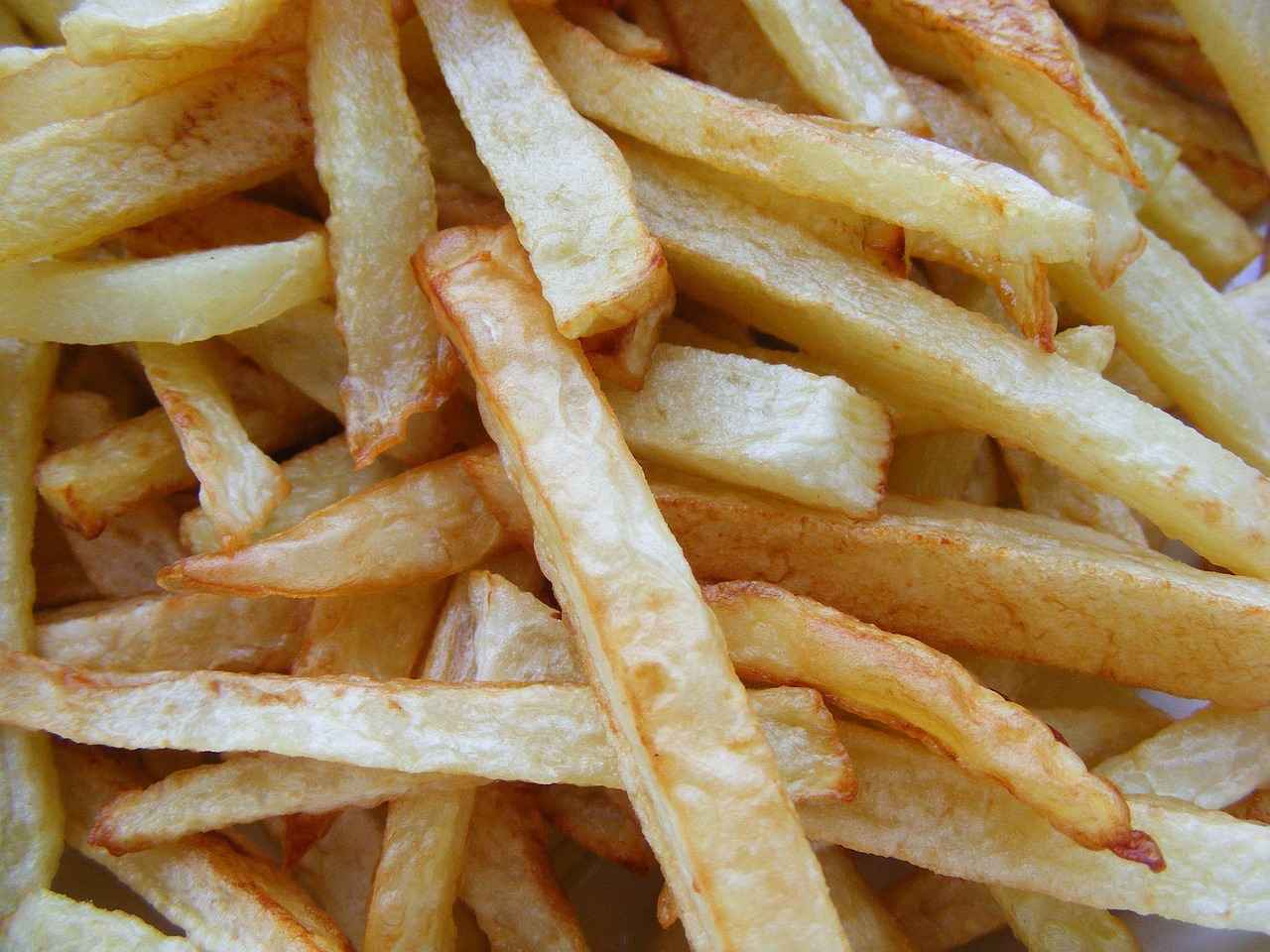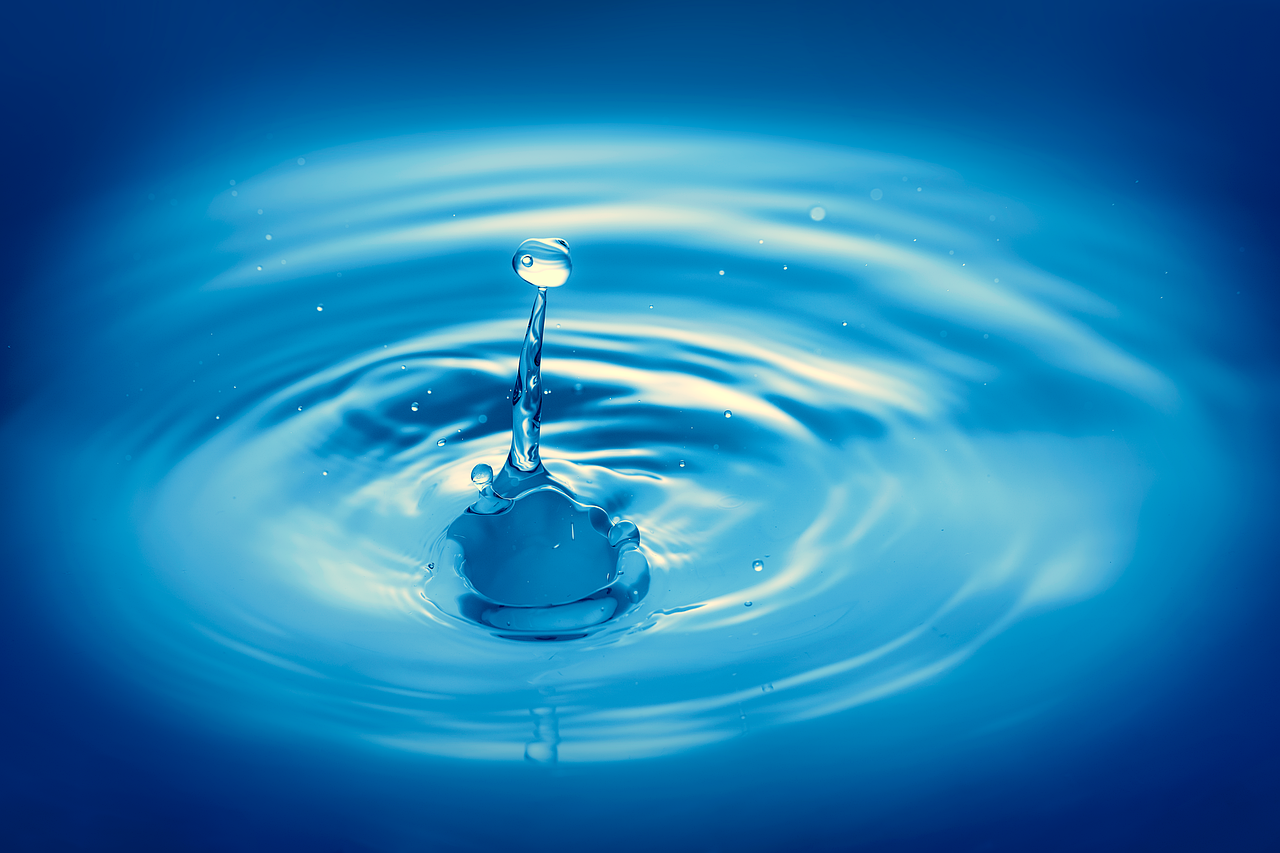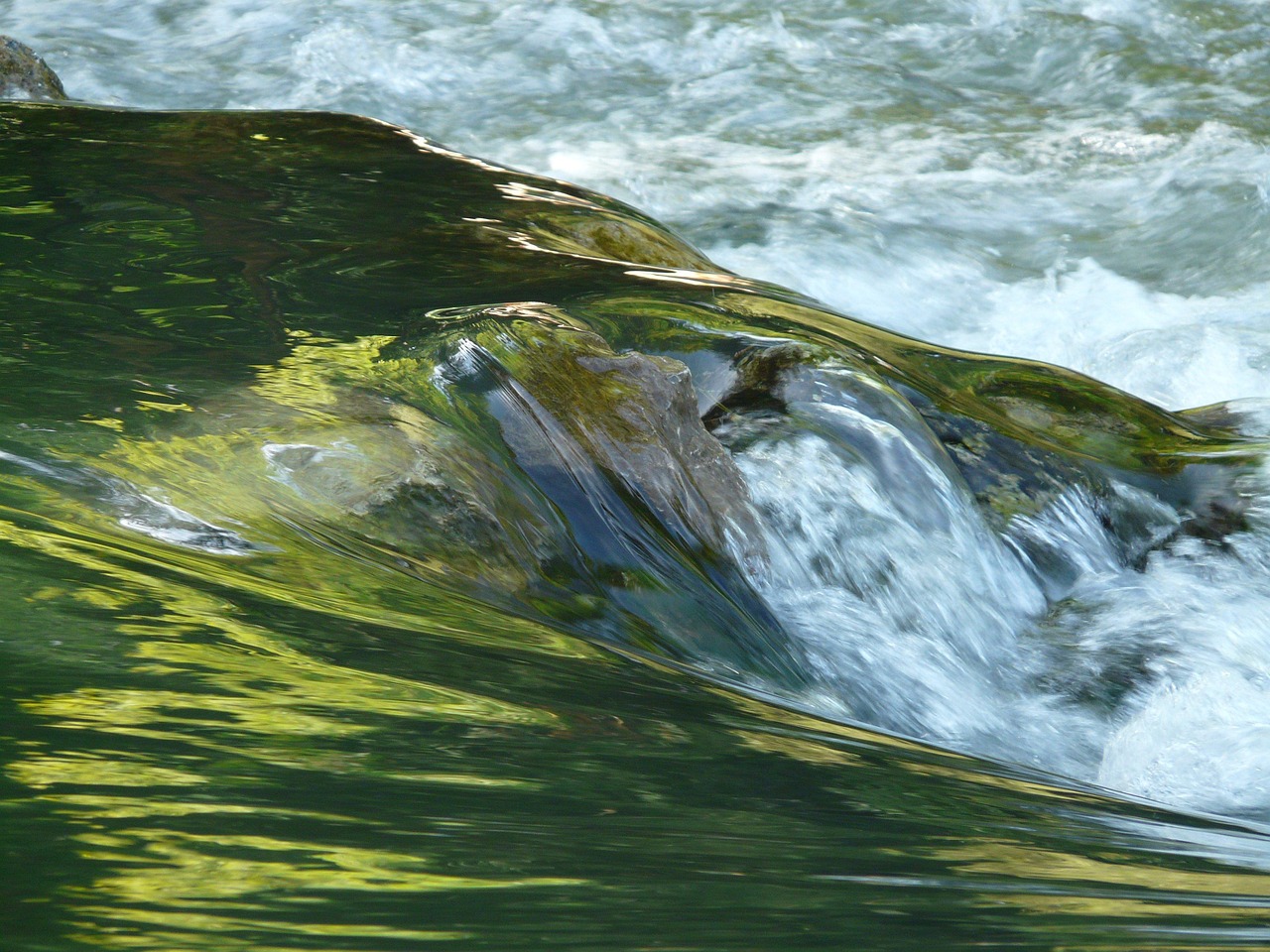Water fasting has gained popularity as a method for detoxification, weight loss, and spiritual growth. However, many individuals, particularly those sharing their experiences on platforms like Reddit, report encountering a peculiar sensation during their fasting journey: a burning feeling in various parts of the body. This article aims to explore these shared experiences, delve into expert insights, and provide practical tips for those considering this fasting method.
What is Water Fasting?
Water fasting entails abstaining from all food and caloric beverages, consuming only water for a specified duration. This practice can lead to significant physical changes and sensations as the body adapts to the absence of food.
Common Physical Sensations During Water Fasting
During water fasting, individuals often report a range of physical sensations. These can include:
- Headaches
- Fatigue
- Burning sensations in various body parts
Understanding these sensations is crucial for anyone considering this fasting method.
Understanding the Burning Sensation
The burning sensation can arise from multiple factors, including:
- Metabolic Changes: As the body transitions from using glucose to fat for energy, metabolic shifts can lead to discomfort, including burning sensations.
- Electrolyte Imbalances: Prolonged fasting may result in decreased levels of essential electrolytes like sodium and potassium, contributing to muscle cramps and burning feelings.
- Detoxification Processes: The body’s natural detoxification can also lead to temporary discomfort as toxins are released.
Personal Experiences Shared on Reddit
Reddit serves as a valuable platform for individuals to share their personal experiences with water fasting. Many users describe their unique sensations, including the burning feeling, providing a community perspective on this practice. These narratives often help others understand what to expect and how to manage their fasting experience.
How to Manage Burning Sensations While Fasting
Effective management of discomfort during water fasting is vital for a successful experience. Here are some strategies:
- Hydration Tips: Staying well-hydrated is essential. Drinking adequate amounts of water can help alleviate burning sensations and support overall bodily functions.
- Listening to Your Body: It’s crucial to pay attention to your body’s signals. If the burning sensation becomes severe, reconsidering the fasting duration or consulting with a healthcare professional may be necessary.
Potential Risks of Water Fasting
While many people undertake water fasting for its perceived benefits, it’s important to recognize potential risks:
- Health Risks to Consider: Fasting can pose health risks, particularly for those with pre-existing conditions. Risks include dehydration, nutrient deficiencies, and exacerbation of chronic health issues.
- Who Should Avoid Water Fasting? Certain populations, including pregnant women, individuals with eating disorders, and those with specific medical conditions, should avoid water fasting. Consulting a healthcare provider is essential before starting any fasting regimen.
In conclusion, while water fasting can offer various benefits, it is accompanied by unique challenges such as burning sensations. By understanding the causes and implementing effective management strategies, individuals can navigate their fasting experiences more safely and effectively.

What is Water Fasting?
Water fasting is a practice that involves abstaining from all food and caloric beverages while consuming only water for a specified duration. This method has gained popularity for various reasons, including detoxification, weight loss, and even spiritual growth. While many individuals embark on this journey with high hopes, it is essential to understand the physical sensations that may arise during the fasting period.
During a water fast, the body undergoes significant metabolic changes as it transitions from using glucose for energy to utilizing stored fat. This shift can lead to a range of physical sensations, including fatigue, headaches, and a notable burning sensation in various parts of the body. Understanding these sensations can provide valuable insights for those considering or currently participating in water fasting.
Many individuals report experiencing unique physical sensations while engaging in water fasting. These sensations can vary widely from person to person, but some of the most commonly reported include:
- Headaches: Often caused by caffeine withdrawal or dehydration.
- Fatigue: A common experience as the body adjusts to a lack of caloric intake.
- Burning Sensation: This sensation may occur in muscles or other areas, prompting further exploration.
The burning sensation experienced during water fasting can be attributed to several factors:
- Metabolic Changes: As the body shifts from glucose to fat for energy, metabolic adjustments can result in various sensations, including burning.
- Electrolyte Imbalances: Prolonged fasting can lead to decreased levels of essential electrolytes like sodium and potassium, contributing to muscle cramps and burning feelings.
- Detoxification Processes: The body may release toxins stored in fat cells, which can also lead to discomfort.
Reddit serves as a vibrant platform for individuals to share their personal experiences with water fasting. Many users recount their journeys, discussing the physical sensations they encountered, including the burning feeling. This community perspective can provide both support and insight for newcomers to the practice.
Managing discomfort during water fasting is crucial for a successful experience. Here are some practical strategies:
- Stay Hydrated: Drinking adequate amounts of water is essential. Proper hydration can help alleviate burning sensations and support overall bodily functions.
- Listen to Your Body: Paying attention to your body’s signals is vital. If the burning sensation escalates or becomes concerning, consider shortening your fast or consulting a healthcare professional.
While many people undertake water fasting for its perceived benefits, it is crucial to recognize potential risks:
- Dehydration: Insufficient water intake can lead to dehydration, posing serious health risks.
- Nutrient Deficiencies: Extended fasting can result in deficiencies of vital nutrients, affecting overall health.
- Exacerbation of Chronic Health Issues: Those with pre-existing conditions should approach water fasting cautiously.
Certain populations should avoid water fasting, including:
- Pregnant Women: Fasting can pose risks to both mother and child.
- Individuals with Eating Disorders: Fasting can exacerbate unhealthy eating patterns.
- Those with Specific Medical Conditions: Always consult a healthcare provider before starting any fasting regimen.
In summary, while water fasting can offer various benefits, it is essential to approach it with caution and awareness of the potential physical sensations and risks involved. By understanding these aspects, individuals can make informed decisions about their fasting practices.

Common Physical Sensations During Water Fasting
Water fasting, a practice where individuals abstain from all food and caloric beverages while consuming only water, has gained popularity for its potential health benefits. However, many participants report experiencing a range of unique physical sensations throughout the fasting period. Among these sensations, headaches, fatigue, and particularly a burning sensation in various parts of the body are frequently noted. Understanding these sensations can provide valuable insights for those considering or currently undertaking water fasting.
The physical sensations experienced during water fasting can be attributed to several factors, including:
- Metabolic Changes: As the body transitions from using glucose to fat for energy, metabolic adjustments occur. This shift can lead to feelings of fatigue and discomfort, including burning sensations.
- Electrolyte Imbalances: Prolonged fasting may result in decreased levels of essential electrolytes, such as sodium and potassium. These imbalances can cause muscle cramps and burning sensations, highlighting the need for careful monitoring of one’s health.
- Detoxification Process: Water fasting is often associated with detoxification. As the body eliminates toxins, some individuals may experience discomfort, including burning sensations, as a part of this cleansing process.
The burning sensation reported by many during water fasting can manifest in different areas of the body, often leading to confusion and concern. This sensation can vary in intensity and location, but understanding its origins can help individuals manage their fasting experience more effectively.
During fasting, the body undergoes significant metabolic changes. Initially, glucose is utilized for energy, but as fasting continues, the body begins to burn fat. This transition can lead some individuals to feel a burning sensation, particularly in areas where fat is being mobilized. The experience can differ based on previous dietary habits and individual metabolism.
Electrolytes play a crucial role in maintaining bodily functions. During water fasting, the absence of food can lead to a reduction in these vital minerals. Low levels of sodium and potassium can result in symptoms such as muscle cramps and burning sensations, emphasizing the importance of hydration and potentially supplementing electrolytes if necessary.
Online forums, particularly Reddit, serve as platforms for individuals to share their fasting experiences. Many users describe their encounters with burning sensations, providing a community perspective that can be both reassuring and informative. These anecdotes often highlight the variability of experiences and the importance of listening to one’s body.
Managing discomfort during water fasting is essential for a successful experience. Here are some practical tips to alleviate burning sensations:
- Stay Hydrated: Drinking adequate amounts of water is crucial. Proper hydration can help mitigate burning sensations and support overall bodily functions.
- Monitor Your Body’s Signals: It’s important to pay attention to how your body feels. If the burning sensation becomes severe or concerning, consider adjusting the fasting duration or seeking advice from a healthcare professional.
- Consider Electrolyte Intake: While water is the primary focus during fasting, ensuring that your body receives necessary electrolytes may help alleviate some discomfort.
While many people undertake water fasting for its perceived benefits, it is vital to recognize potential risks associated with this practice. Understanding these risks can help individuals make informed decisions about their fasting practices.
Fasting can pose health risks, especially for those with pre-existing conditions. Individuals should be aware of potential complications, such as dehydration, nutrient deficiencies, and exacerbation of chronic health issues. Consulting a healthcare provider before starting any fasting regimen is highly recommended.
Certain populations, including pregnant women, individuals with eating disorders, and those with specific medical conditions, should avoid water fasting. A thorough consultation with a healthcare provider is essential to ensure safety and well-being during fasting.
Understanding the Burning Sensation
Water fasting has gained popularity for various reasons, including detoxification, weight loss, and spiritual cleansing. However, many individuals experience a burning sensation during this process, which can be quite uncomfortable. This article explores the underlying factors contributing to this sensation, helping individuals to better understand and manage their fasting experiences.
The burning sensation experienced during water fasting can arise from several physiological changes that occur in the body. These changes include:
- Metabolic Shifts: When fasting begins, the body transitions from using glucose as its primary energy source to burning fat. This metabolic shift can lead to the production of ketones, which may cause sensations like burning or tingling as the body adjusts.
- Electrolyte Imbalances: Extended periods without food can lead to a decrease in essential electrolytes such as sodium, potassium, and magnesium. These imbalances can result in muscle cramps and a burning feeling, particularly in the legs and arms.
- Detoxification Processes: As the body eliminates toxins stored in fat, individuals may experience various symptoms, including a burning sensation. This is often a sign that the body is actively detoxifying, although it can be uncomfortable.
During the initial days of water fasting, the body undergoes significant metabolic changes. As glycogen stores deplete, the body begins to rely on fat for energy. This transition can elicit a range of sensations, including:
- Fatigue: Many individuals report feeling tired as their bodies adjust to a new energy source.
- Burning Sensation: The process of fat breakdown can cause a burning feeling, particularly in areas where fat is being mobilized.
Maintaining a proper balance of electrolytes is crucial during water fasting. When food intake is restricted, the body may not receive adequate levels of these essential minerals, leading to:
- Muscle Cramps: Low levels of potassium and magnesium can cause muscle spasms, contributing to the burning sensation.
- Fatigue and Weakness: Electrolyte deficiencies can result in overall feelings of fatigue, further compounding the discomfort of fasting.
Online communities, such as Reddit, provide valuable insights into the experiences of individuals undergoing water fasting. Many users share stories of their discomfort, including the burning sensation. These personal accounts can offer support and understanding, as well as tips for managing these sensations effectively.
While experiencing a burning sensation during fasting can be disconcerting, there are several strategies to alleviate discomfort:
- Stay Hydrated: Drinking sufficient water is essential. It helps to flush out toxins and can reduce the intensity of burning sensations.
- Monitor Electrolyte Levels: Consider supplementing with electrolytes if fasting for extended periods. This can help maintain balance and reduce muscle cramps.
- Listen to Your Body: Pay attention to any signals from your body. If the burning sensation becomes severe, it may be wise to reevaluate your fasting plan or consult a healthcare professional.
While many individuals undertake water fasting for its perceived benefits, it is essential to recognize potential risks. These can include:
- Dehydration: Insufficient water intake can lead to dehydration, exacerbating discomfort.
- Nutrient Deficiencies: Extended fasting can result in a lack of essential nutrients, impacting overall health.
- Exacerbation of Health Issues: Those with pre-existing conditions should approach fasting with caution, as it may worsen certain health issues.
Understanding the factors behind the burning sensation during water fasting can empower individuals to manage their experiences more effectively. By staying informed and attentive to their bodies, they can navigate the challenges of fasting with greater ease.
Metabolic Changes Explained
During water fasting, the body undergoes significant metabolic changes as it transitions from using glucose, its primary energy source, to utilizing fat stores. This shift can lead to a variety of sensations, including the often-reported burning feeling. Understanding these metabolic processes is crucial for anyone considering or currently engaging in water fasting.
Initially, the body relies heavily on glucose derived from carbohydrates. As fasting progresses, glycogen stores in the liver and muscles become depleted, typically within the first 24 hours. Once these stores are exhausted, the body enters a state known as ketosis, where fat becomes the primary fuel source. This transition can trigger several physiological responses that may manifest as burning sensations in various parts of the body.
Each individual’s experience during this metabolic shift can vary significantly based on several factors, including their prior eating habits, overall health, and level of physical activity. For example, someone accustomed to a high-carbohydrate diet may experience more pronounced sensations during the transition compared to someone who has previously followed a low-carb or ketogenic diet.
Furthermore, the burning sensation can also be attributed to the release of ketones into the bloodstream. As fat is broken down, ketones are produced, which can lead to changes in energy levels and metabolic function. Some individuals report feeling a heightened sense of energy, while others may experience discomfort. This variability underscores the importance of understanding one’s body and its responses during fasting.
Additionally, as the body adapts to using fat for energy, it may also undergo hormonal changes. Hormones such as insulin decrease, while others like glucagon increase, promoting fat breakdown. These hormonal shifts can further contribute to feelings of discomfort or burning as the body adjusts to its new energy source.
It is also essential to note that electrolyte imbalances can occur during fasting, especially if adequate hydration is not maintained. Electrolytes like sodium, potassium, and magnesium play vital roles in muscle function and nerve signaling. A deficiency in these essential minerals can lead to muscle cramps and an intensified burning sensation. Therefore, monitoring electrolyte levels and ensuring proper hydration is crucial for a more comfortable fasting experience.
Moreover, the detoxification process that often accompanies fasting can lead to additional physical sensations. As the body eliminates stored toxins, some individuals may experience discomfort, which can be perceived as a burning sensation. This detox phase varies among individuals, influenced by factors such as diet, lifestyle, and pre-existing health conditions.
In conclusion, the burning sensation experienced during water fasting is a complex interplay of metabolic changes, hormonal shifts, and potential electrolyte imbalances. Understanding these factors can help individuals better navigate their fasting journey, allowing them to manage discomfort and achieve their health goals more effectively. Listening to one’s body and adjusting the fasting approach as needed is essential for a safe and beneficial experience.
Electrolyte Imbalances
during water fasting can significantly impact overall health and well-being. As individuals embark on this journey of abstaining from food and caloric beverages, the body undergoes various physiological changes, particularly in the balance of essential electrolytes. These electrolytes, including sodium, potassium, magnesium, and calcium, play crucial roles in maintaining bodily functions, and their depletion can lead to several uncomfortable symptoms.
When engaging in a water fast, the body primarily relies on its stored energy sources. This process often results in a decrease in electrolyte levels, which can create an imbalance. For instance, sodium is vital for maintaining fluid balance and nerve function, while potassium is essential for muscle contractions and heart health. A lack of these electrolytes can lead to symptoms such as:
- Muscle Cramps: Many fasting individuals report experiencing muscle cramps, which can be attributed to low potassium levels. These cramps can occur unexpectedly and can be quite painful.
- Burning Sensations: Some people describe a burning feeling in their muscles or extremities, often linked to electrolyte deficiencies. This sensation can be alarming and may deter individuals from continuing their fast.
- Fatigue and Weakness: Depleted electrolyte levels can lead to general fatigue and weakness, making it challenging to maintain energy levels throughout the fasting period.
- Heart Palpitations: In severe cases, imbalances can affect heart rhythm, leading to palpitations or irregular heartbeat, which requires immediate attention.
It is crucial for individuals considering water fasting to monitor their electrolyte intake closely. While water is the only substance consumed during this fasting method, incorporating electrolyte supplements or consuming electrolyte-rich beverages before and after fasting can help mitigate these risks. Additionally, it is advisable to break the fast gradually, allowing the body to readjust and replenish lost electrolytes.
Furthermore, recognizing the signs of electrolyte imbalance is essential for anyone undertaking a water fast. Listening to your body and being aware of any unusual sensations can help you make informed decisions about your fasting journey. If you experience severe symptoms or discomfort, it is wise to consult with a healthcare professional.
Ultimately, understanding the implications of during water fasting is vital. By being proactive and informed, individuals can enhance their fasting experience while minimizing potential health risks. Engaging in proper hydration practices, monitoring electrolyte levels, and listening to one’s body can lead to a safer and more effective fasting journey.
Personal Experiences Shared on Reddit
delve into the multifaceted experiences of individuals engaging in water fasting. This online community serves as a rich tapestry of personal narratives, where users candidly share their journeys, challenges, and physical sensations encountered during their fasting periods. One of the most frequently discussed sensations is the burning feeling, which many users describe in varying degrees of intensity and location.
Within the Reddit community, users often post about their first-time experiences with water fasting. Many express a mix of excitement and apprehension. For instance, one user recounted how they felt a burning sensation in their stomach after the first 24 hours, which they later learned was a common reaction as the body adjusts to fasting. This sensation, while alarming, was often framed within the context of a necessary detoxification process.
Another Redditor shared insights into how their burning sensation transitioned from a physical discomfort to a sense of clarity and lightness after a few days. They mentioned that this shift was accompanied by an increase in mental clarity, which many users attribute to the body’s adaptation to using fat for energy instead of glucose. This experience highlights the dual nature of fasting sensations—what may start as discomfort can evolve into a feeling of well-being.
- Physical Reactions: Users frequently describe sensations such as headaches, fatigue, and a burning feeling in muscles or the digestive tract. These reactions can vary widely among individuals, influenced by factors such as prior eating habits and overall health.
- Emotional Responses: Alongside physical sensations, many users report emotional highs and lows. Some mention feelings of euphoria that accompany the initial discomfort, while others express anxiety about their physical state.
Moreover, the discussions on Reddit often include practical advice on how to cope with these sensations. Several users recommend staying hydrated and listening to one’s body. They emphasize that if the burning sensation becomes too intense or worrisome, it might be time to reconsider the fasting approach or consult a healthcare professional.
Expert insights shared by nutritionists and health practitioners on Reddit further enrich these personal accounts. They often explain the physiological reasons behind the burning sensations, linking them to metabolic changes and the body’s efforts to detoxify itself. This scientific perspective reassures many users that their experiences are not uncommon and can be managed with the right strategies.
In addition to sharing experiences, Reddit users create a supportive environment, encouraging one another to persist through the challenges of fasting. The community aspect is vital, as many individuals find comfort in knowing they are not alone in their struggles. This sense of belonging can be a powerful motivator for those considering or currently undertaking water fasting.
Ultimately, the shared experiences on Reddit provide a comprehensive overview of the water fasting journey, highlighting both the challenges and the potential benefits. By learning from one another, users can navigate their fasting experiences more effectively, armed with knowledge and community support.

How to Manage Burning Sensations While Fasting
Managing discomfort during water fasting is crucial for a successful experience. Various strategies can help alleviate burning sensations, ensuring participants remain comfortable and safe throughout their fasting journey. This article will explore effective methods to manage such sensations and provide practical advice for those embarking on water fasting.
During water fasting, individuals often report a burning sensation in various parts of their body. This can be attributed to several factors:
- Metabolic Shifts: As the body transitions from burning glucose to fat for energy, metabolic changes can lead to unusual sensations.
- Electrolyte Imbalances: Prolonged fasting can deplete essential electrolytes, causing discomfort and muscle cramping.
- Detoxification: The process of detoxifying can cause temporary discomfort as the body eliminates toxins.
Here are some practical strategies to help manage burning sensations during water fasting:
Ensuring adequate hydration is vital. Drinking enough water helps to flush out toxins and can alleviate burning sensations. Aim for at least 2-3 liters of water daily, adjusting based on activity levels and environmental conditions.
Consider supplementing with electrolytes, especially if fasting for an extended period. Electrolyte powders or tablets can help maintain balance and reduce the risk of cramps and burning sensations.
Pay close attention to your body’s signals. If the burning sensation becomes intense or painful, it may be a sign to shorten your fasting period or take a break. Consulting a healthcare professional can provide additional guidance tailored to your specific needs.
For those new to fasting, consider starting with shorter fasting durations. Gradually increasing the length of your fast can help your body adjust and minimize discomfort.
Engaging in light physical activity, such as walking or stretching, can improve circulation and help alleviate discomfort. Movement encourages blood flow and can reduce the intensity of burning sensations.
Practicing mindfulness or relaxation techniques, such as meditation or deep breathing, can help manage stress and discomfort during fasting. Stress reduction can positively affect your overall fasting experience.
While many individuals can safely manage burning sensations during water fasting, it is important to be aware of when to seek medical advice. If you experience:
- Severe or persistent burning sensations
- Signs of dehydration, such as dizziness or dark urine
- Severe headaches or fatigue that does not improve with hydration
It is essential to consult a healthcare professional to ensure your safety and well-being.
Managing burning sensations during water fasting involves a combination of hydration, electrolyte balance, and mindfulness. By implementing these strategies, individuals can enhance their fasting experience, ensuring it remains safe and effective.
Hydration Tips
Staying adequately hydrated is essential during water fasting. Many individuals underestimate the importance of water intake, yet it plays a crucial role in the overall fasting experience. Adequate hydration not only helps to mitigate uncomfortable sensations, such as burning feelings in the body, but also supports vital bodily functions that are often challenged during fasting.
When engaging in water fasting, the body undergoes significant metabolic changes. These changes can lead to a variety of sensations, including burning sensations, which can be disconcerting for many. By ensuring proper hydration, individuals can help alleviate these sensations and promote a smoother fasting experience.
Here are some to consider while water fasting:
- Set a Daily Water Goal: Aim to drink a specific amount of water each day. A common recommendation is to consume at least 2 to 3 liters of water daily. This helps ensure that your body is adequately hydrated throughout the fasting period.
- Drink Water Regularly: Instead of waiting until you feel thirsty, make it a habit to sip water at regular intervals. This proactive approach can help maintain hydration levels and prevent the onset of burning sensations.
- Monitor Your Urine Color: A simple way to gauge your hydration status is by checking the color of your urine. Light yellow urine typically indicates proper hydration, while dark yellow or amber urine can signal dehydration.
- Incorporate Electrolytes: While water is essential, adding a pinch of salt or electrolyte supplements can help maintain electrolyte balance. This is particularly important during extended fasting periods, as imbalances can contribute to discomfort.
- Listen to Your Body: Pay attention to your body’s signals. If you experience increased burning sensations or fatigue, consider increasing your water intake or taking a break from fasting.
It’s also important to note that hydration goes beyond just drinking water. Incorporating herbal teas or infusions can offer additional benefits without breaking the fast. These beverages can provide soothing effects and help with the detoxification process.
Moreover, staying hydrated can aid in the detoxification process that often accompanies water fasting. When the body is well-hydrated, it can more effectively flush out toxins, which may otherwise contribute to feelings of discomfort, including burning sensations.
During water fasting, the body also requires adequate hydration to support cognitive function and energy levels. Dehydration can lead to fatigue and cognitive fog, making the fasting experience more challenging. By prioritizing hydration, individuals can maintain focus and clarity, enhancing their overall fasting journey.
In summary, staying adequately hydrated during water fasting is not just a recommendation; it is a necessity. Proper hydration can significantly alleviate burning sensations and support essential bodily functions, making the fasting experience more manageable and enjoyable. By following these hydration tips, individuals can enhance their water fasting experience and promote better health outcomes.
Listening to Your Body
Listening to your body is an essential aspect of maintaining overall health and well-being, especially during periods of fasting. This practice, particularly water fasting, can lead to various physical sensations that may be unfamiliar or even alarming. It’s crucial to understand that your body sends signals that should not be ignored. Paying close attention to these signals can help you navigate the fasting experience more safely and effectively.
During water fasting, many individuals report experiencing a range of sensations, including hunger pangs, headaches, fatigue, and particularly, a burning sensation in various areas of the body. These sensations can vary in intensity and duration, and they often serve as a reminder to assess your body’s condition. Ignoring these signals can lead to potential complications and discomfort.
One of the primary reasons for the burning sensation during fasting is the body’s metabolic shift. As the body transitions from using glucose as its primary energy source to burning fat, it undergoes significant changes. This metabolic switch can result in various physical sensations, including the burning feeling. It’s important to recognize that this is a normal part of the fasting process, but it should not be excessively painful or distressing.
Moreover, electrolyte imbalances can also contribute to discomfort during water fasting. When you consume only water, your body may experience a decrease in essential electrolytes like sodium and potassium. These imbalances can lead to muscle cramps and a burning sensation, particularly in the extremities. Therefore, staying hydrated and considering electrolyte supplementation may be beneficial during prolonged fasting periods.
If you experience a burning sensation while fasting, it’s vital to listen to your body. Here are some practical tips to help manage discomfort:
- Stay Hydrated: Ensure you are drinking enough water throughout the day. Adequate hydration can help alleviate burning sensations and support overall bodily functions.
- Monitor Your Symptoms: Keep track of any sensations you experience. If the burning sensation becomes severe or persistent, it may be a sign that you need to adjust your fasting approach.
- Consult a Professional: If you have concerns about your health while fasting, don’t hesitate to seek advice from a healthcare professional. They can provide personalized guidance based on your individual health needs.
- Adjust Your Fasting Duration: If you find that the burning sensation is too intense, consider shortening your fasting duration. It’s essential to prioritize your health and well-being over strict adherence to fasting goals.
In summary, listening to your body during water fasting is crucial. While some discomfort is expected, particularly during the initial days of fasting, severe sensations should not be ignored. By paying attention to your body’s signals and taking proactive steps to manage discomfort, you can enhance your fasting experience and ensure it is a safe and beneficial practice.
Ultimately, fasting should be a mindful practice that promotes health and well-being. Understanding your body’s signals and responding appropriately can help you navigate this journey with greater ease and confidence.

Potential Risks of Water Fasting
Water fasting, while often embraced for its potential health benefits, carries a range of potential risks that individuals should carefully consider before embarking on this practice. Understanding these risks is crucial for making informed decisions about fasting, ensuring that individuals can maximize benefits while minimizing adverse effects.
Water fasting involves abstaining from all food and caloric beverages, consuming only water for a specified duration. Although many people report positive outcomes, it is essential to recognize that fasting can lead to various health complications. Below, we explore the most significant risks associated with water fasting.
One of the primary risks of water fasting is dehydration. While it may seem counterintuitive to worry about hydration when consuming only water, fasting can lead to increased fluid loss through urine and sweat. Without food intake, the body may also lose essential electrolytes, leading to further dehydration. Symptoms of dehydration include:
- Dizziness
- Dry mouth
- Fatigue
- Headaches
Extended periods of fasting can result in nutrient deficiencies, as the body is deprived of essential vitamins and minerals found in food. Prolonged fasting can lead to:
- Weakness and fatigue
- Impaired immune function
- Bone density loss
Individuals who fast for extended periods without proper planning may find themselves facing serious health issues due to these deficiencies.
Individuals with pre-existing health conditions, such as diabetes or heart disease, should approach water fasting with caution. Fasting can exacerbate these conditions, leading to complications such as:
- Hypoglycemia in diabetics
- Increased heart strain
Consulting a healthcare provider before beginning any fasting regimen is essential for those with chronic health issues.
Water fasting is not suitable for everyone. Specific populations should avoid this practice to prevent serious health complications. These include:
- Pregnant or breastfeeding women
- Individuals with a history of eating disorders
- Those with certain medical conditions, such as kidney disease
It is crucial for these individuals to seek guidance from a healthcare professional before considering fasting.
Fasting can also have psychological effects, including increased anxiety and irritability. The lack of food intake can lead to mood swings and a decreased ability to concentrate. Understanding and addressing these potential psychological impacts is vital for those considering water fasting.
While water fasting may offer various health benefits, it is essential to weigh these against the potential risks. By being informed and cautious, individuals can make better decisions regarding their fasting practices. Always consult with a healthcare provider to ensure that fasting is a safe and appropriate option based on individual health needs.
Health Risks to Consider
Fasting, particularly water fasting, is often pursued for various reasons including weight loss, detoxification, and spiritual growth. However, it is essential to recognize that this practice can pose significant health risks, especially for individuals with pre-existing conditions. Understanding these risks is crucial for anyone considering a fasting regimen.
When engaging in water fasting, individuals may face several potential complications that can affect their overall health. It is vital to be aware of these risks to make informed decisions. Some of the most common health risks associated with water fasting include:
- Dehydration: While water is consumed, prolonged fasting can lead to an imbalance in hydration levels. Individuals may not drink enough water to compensate for the loss of fluids, leading to dehydration, which can cause dizziness, fatigue, and confusion.
- Nutrient Deficiencies: Extended periods without food can result in a lack of essential nutrients. The body requires vitamins and minerals to function optimally, and fasting can lead to deficiencies that may cause long-term health issues.
- Exacerbation of Chronic Conditions: For those with chronic health issues such as diabetes, heart disease, or kidney problems, fasting can worsen their conditions. Monitoring blood sugar levels, for example, becomes crucial as fasting can lead to dangerous fluctuations.
While many individuals may consider water fasting safe, certain populations should be particularly cautious:
- Pregnant or Breastfeeding Women: Fasting can deprive both the mother and baby of necessary nutrients, leading to potential complications.
- Individuals with Eating Disorders: For those with a history of eating disorders, fasting can trigger harmful behaviors and exacerbate their condition.
- People with Chronic Health Conditions: Those with conditions such as heart disease, diabetes, or kidney disease should consult healthcare professionals before attempting any fasting regimen.
It is important to be vigilant about the body’s signals during fasting. Some signs that complications may be arising include:
- Severe Fatigue: Feeling excessively tired or weak can indicate that the body is not receiving adequate nutrients.
- Persistent Dizziness: If dizziness occurs, it may be a sign of dehydration or low blood sugar levels.
- Intense Cravings: While cravings are normal, intense and uncontrollable urges to eat may suggest that fasting is not suitable for the individual.
Before embarking on a water fasting journey, it is advisable to consult with a healthcare provider. They can offer personalized advice based on individual health status and needs. This step is particularly important for those with pre-existing conditions or concerns about potential risks.
In summary, while water fasting may offer certain benefits, the associated health risks cannot be overlooked. Awareness and understanding of these risks are essential for anyone considering this practice. By taking the necessary precautions and seeking professional guidance, individuals can better navigate the complexities of water fasting.
Who Should Avoid Water Fasting?
Water fasting, while popular among many for its potential health benefits, is not suitable for everyone. Understanding who should avoid this practice is crucial for ensuring safety and well-being. Below, we explore specific populations that should refrain from water fasting and emphasize the importance of consulting healthcare professionals before embarking on such a regimen.
Pregnancy is a critical period for both the mother and the developing fetus. Pregnant women should avoid water fasting due to the increased nutritional needs during this time. Fasting can lead to nutrient deficiencies that may adversely affect fetal development and maternal health. Essential vitamins and minerals are vital for the growth of the baby, and depriving the body of these nutrients can pose serious risks.
Those who have a history of eating disorders, such as anorexia or bulimia, should also steer clear of water fasting. Engaging in fasting can trigger relapses or exacerbate unhealthy eating behaviors. For individuals recovering from an eating disorder, the focus should be on developing a healthy relationship with food rather than restricting intake. Consulting a mental health professional is essential for anyone in this situation.
Individuals with chronic medical conditions, such as diabetes, heart disease, or kidney issues, should be cautious when considering water fasting. Fasting can lead to dangerous fluctuations in blood sugar levels for those with diabetes, potentially resulting in hypoglycemia or hyperglycemia. Similarly, individuals with kidney problems may experience complications due to dehydration or electrolyte imbalances.
If you are taking medications that require food intake, it is crucial to avoid water fasting. Certain medications need to be taken with food to prevent gastrointestinal discomfort or to ensure proper absorption. Consulting with a healthcare provider can help determine the best course of action based on your specific medication regimen.
Before starting any fasting regimen, including water fasting, consulting a healthcare provider is essential. A healthcare professional can assess individual health conditions, medications, and overall suitability for fasting. They can provide personalized advice and alternative methods for achieving health goals safely.
Aside from the specific populations mentioned, water fasting can pose risks for anyone, including dehydration, electrolyte imbalances, and nutrient deficiencies. Understanding these risks is vital for making informed decisions. Individuals should be aware of their bodies and recognize when to seek medical advice.
Water fasting can be a beneficial practice for some, but it is not for everyone. Pregnant women, individuals with eating disorders, and those with chronic medical conditions should avoid this fasting method. Always prioritize health and safety by consulting a healthcare provider before making any significant dietary changes.
Frequently Asked Questions
- What causes the burning sensation during water fasting?
The burning sensation can be attributed to several factors, such as metabolic changes as your body shifts from burning glucose to fat for energy. Additionally, electrolyte imbalances due to water fasting can lead to discomfort, including muscle cramps and that familiar burning feeling.
- How can I manage burning sensations while fasting?
Staying hydrated is key! Drinking plenty of water can help alleviate those burning sensations. Also, listen to your body; if the discomfort becomes too intense, consider shortening your fast or consulting a healthcare professional for advice.
- Is water fasting safe for everyone?
Not necessarily. Water fasting can pose risks, especially for pregnant women, individuals with eating disorders, or those with certain medical conditions. It’s crucial to consult with a healthcare provider before starting any fasting regimen to ensure it’s safe for you.
- What should I do if I feel unwell during a water fast?
If you start feeling unwell, it’s important to listen to your body. You might need to break your fast or seek medical advice, especially if symptoms like the burning sensation become severe or concerning.












